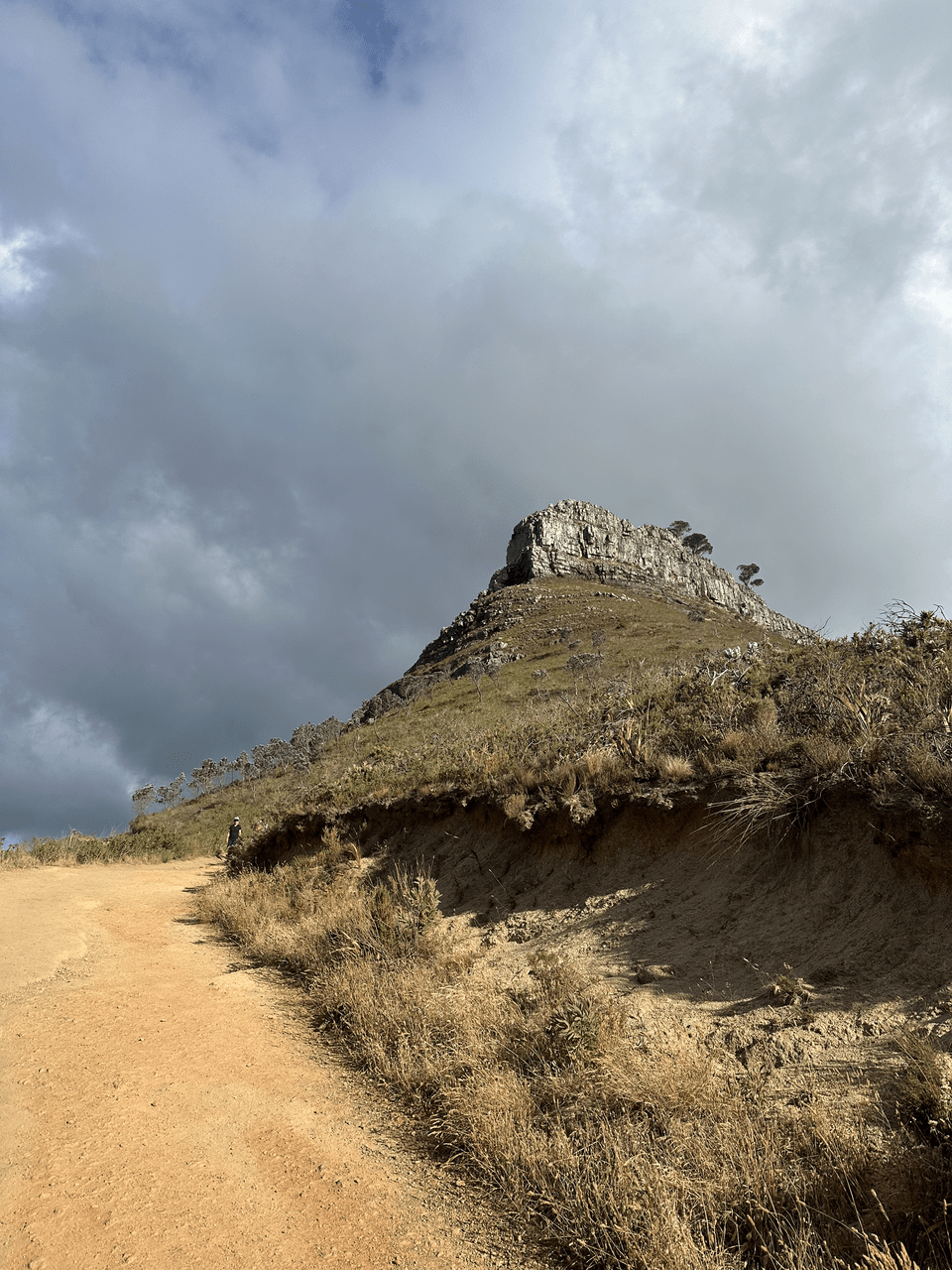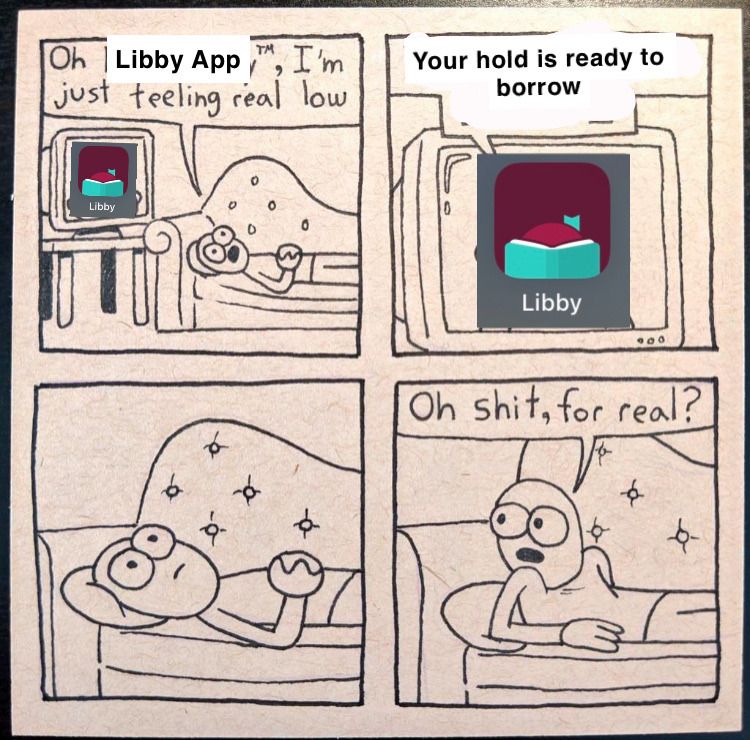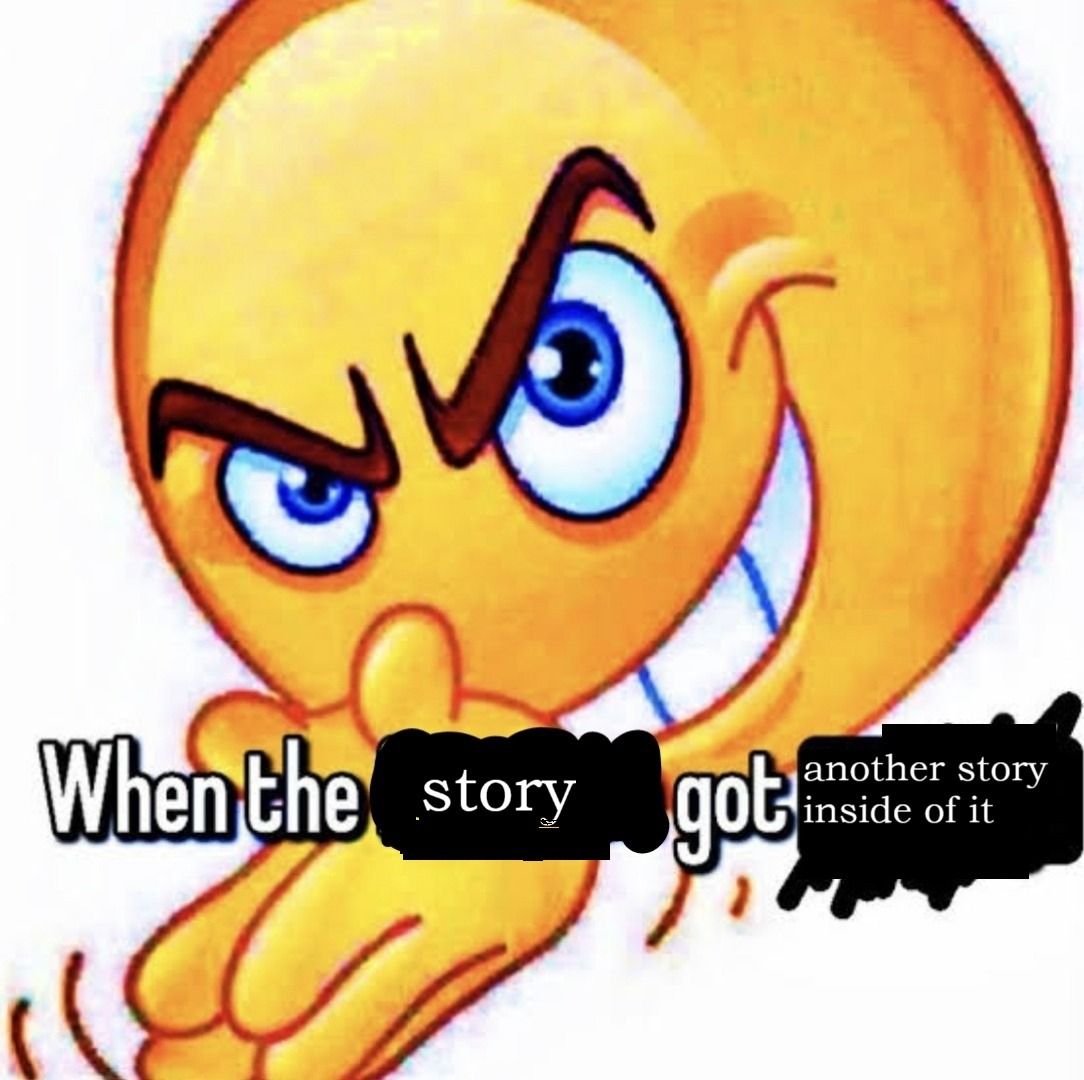Issue 86: Small steps
Last December, I was in Cape Town with E for a family reunion with his South African relatives. While we were there, we hiked Lion’s Head, a popular peak in Table Mountain National Park. E and I, along with his brother and his wife, woke early to beat the heat and avoid the worst of the midday sun. Uncle Kev, a brawny swimmer with an affable smile, was our guide. He’d hiked Lion’s Head many times, and even done so in Crocs. (This is even more impressive considering the last section of this hike involves climbing metal ladders and scrambling up boulders.) This time, he’d worn close-toed shoes for our benefit.
Most of the trail was a steep, dusty path that wound around the mountain, with occasional lookout points over the city and the ocean. The views were stunning. While I’m not a big hiker, I always appreciate scenic walks.

For the first half hour or so, I took long strides, trying to eat up as much distance in one go as possible. At one point, Kev gently pointed out to me that I was actually making it harder for myself. The key, he said, was to take small steps. Smaller steps put less strain on the calves and help you keep your balance. You tire less quickly, so you’re ultimately able to go farther, with more ease.
It felt strange to take smaller steps, but I did find it easier.
I’m not really one for New Year’s resolutions, but I do reflect on habits I’d like to change or develop. Rather than setting an ambiguous, ambitious goal for the whole year, I decided to just take things one month at a time. In January. I set a goal for myself to walk 4000 steps and write 300 words every day. (I'm working on a novel draft and I previously wrote part of a different novel through a daily quota of 200-400 words.) I found a Today show template for a monthly walking goal, printed it out, and kept it on the kitchen table where I could easily mark my day’s steps and words.
A few days into my daily habit tracker, I read science journalist Jane Hu’s newsletter about self-improvement: “How do I want to spend my days, and how can I convince myself to actually do that?” It almost felt like Hu had been inside my own mind. She described how tracking habits could easily lead to guilt and shame if she missed a few days, and how she instead wanted to think about providing positive reinforcement. Rather than being motivated through compliance, she wanted to be motivated by confidence.
Hu’s answer was to use stickers in her habit tracker:
It’s more that my silly system is fun, and it reminds me that I set it up because these are actually the things I like to do! It’s leaning into gentleness, a way to give myself a pat on the back for things that matter to me, because I’m the only one who can or will recognize myself for being good to myself.
I adopted a similar system, using a roll of stickers my sister gave me that said “Good job!” and “Excellent!” in bright primary colors. At the end of every week, I gave myself a sticker. It’s been a nice visual representation of my progress, a mini reward for another week of exercise and writing.
In Atomic Habits, James Clear recommends you “stay below the point where it feels like work” and to just “take the smallest action that confirms the type of person you want to be.” In other words, small steps add up. If you want to develop a gym habit, for example, he recommends going to the gym three times a week, but only staying for five minutes. When starting out, the most important thing is to become the kind of person who shows up. Only ramp up the habit once you’ve been able to commit consistently to it.
January came and went—and I reached my goal! I felt like these two core behaviors provided me with a good structure to my day. I made progress on my novel and I began listening to more audiobooks and podcasts as a result of walking more. If I’m focused and deep in a scene, I can easily write 300 words in half an hour. If I commute and run out for lunch, that will be just about 4000 steps. The regularity has helped me understand what these habits feel like in my day-to-day life.
It reminds me of when I first started reading 52 books in 52 weeks. The first year or two required a lot of concentration and conscious effort. But as time went on, I learned the rhythms of my life, allowing it to slowly become second nature. The key was an initial period of active tending.
I’ve continued this into February and now March, rewarding myself along the way by buying a Muji calendar notebook for a more permanent habit tracker. Since the year began, I’ve written 21,000 words and my average step count is 1000 steps higher than the previous year’s.
Between work, writing, and some early wedding planning, this past month has prompted me to once again reflect on consistency over intensity. Hu writes about “leaning into gentleness,” which is the most challenging thing for me when it comes to habit tracking. I’m still trying to strike a balance between making intentional space for rest and when to show up a little bit rather than not at all. When it’s better to keep plowing forward because you might surprise yourself, or when to take a proper break to reorient and restore.
Clear notes that perfection is not possible, and embraces this through his “never miss twice” rule. For example, he might miss one workout, but he tries to never miss two workouts in a row. The aim isn’t to prevent mistakes from happening, but to prevent errors from becoming part of the pattern of behavior.
On our hike down Lion’s Head, I slipped on one portion and landed badly, slamming my lower back into a rock in the process. At first, I was embarrassed that I was blocking the trail, which was quickly becoming crowded. I insisted we keep going even though I was crying from the shock of it. E and Kev insisted we take a break, and we took a few minutes to rest and drink some water.
When we were ready to continue, Kev pointed out loose rocks to avoid and offered me his hand to help me down some of the trickier sections. Once again, he had an observation: I wasn’t fully leaning on his hand, so I wasn’t actually making the descent any easier. I laughed to myself. I hadn’t even realized I could half-commit to receiving help.
I’m grateful to Kev for helping me up and down that mountain. I know now that the path can be made easier through intention and commitment—not just in taking advice, but also in accepting help. Anything less only makes the journey more difficult.


Creative resources
- Apply for VONA summer virtual workshops and A Public Space’s Writing Fellowships by March 31
- Leslie Jamison on learning to say ‘no’: “More than anything, however, the Notebook of Noes helped me see absence as a form of presence—instead of lamenting the ghost limb of what I wasn’t doing, I could acknowledge that every refusal was making it more possible to do something else.”
- A great digital zine by Carolyn Yoo on How to Keep Your Hobby from Becoming a Job
- “Do I Really Need to Op-Ed to Sell Books?” by Tajja Isen
- I’ve been greatly enjoying Kristen Arnett’s new column, Am I the (Literary) Asshole, which answers questions like “Is it okay to be creatively motivated by revenge?” and “Do I have to finish a book to blurb it?”
Recent reads & other media
The novel I’m working on is about sisters, so I’ve been rereading High School by Tegan and Sara Quin for research. I listened to Kara Swisher’s memoir, Burn Book: A Tech Love Story, which chronicles her experience as a journalist covering the tech industry and tech titans, but also the way “tech obliterated media.”
A friend and I gleefully watched the awful two hour Pepsi ad—I mean, movie— Madame Web. Some friends and I saw Drive-Away Dolls, a raunchy queer road trip movie that was entertaining, but a flimsier version of similar Coen brothers movies like Fargo or Burn After Reading. Anatomy of a Fall was a fascinating dissection of a marriage (and all the awards for the dog!) I was so happy when the Oscars played the steel drums cover of P.I.M.P. when Justine Triet won for Best Original Screenplay.
I saw Dune: Part Two in 70mm IMAX and it was phenomenal. There were some interesting creative departures from the book, but overall I think it translated a difficult text very well. As Denis Villeneuve would say, Long live cinema! Under duress from my sister and her Timothee Chalamet obsession, we watched Wonka. While I’m not a huge fan of musicals, Paul King (of Paddington fame) made it delightfully zany. A chocolate cartel that’s supported by corrupt police and priests? How very Dune.
Recently read short stories: “Valley of the Moon” by Paul Yoon
Note: Book links are connected to my Bookshop affiliate page. If you purchase a book from there, you'll be supporting my work and local independent bookstores!
~ meme myself and i ~
When you pushed through a book you didn’t like. A proper slice of banana bread. Putting on an outfit you thought looked cool in your head. Social battery bedtime vs. actual bedtime. When you rediscover one of your old hyperfixations. The trains must flow.

